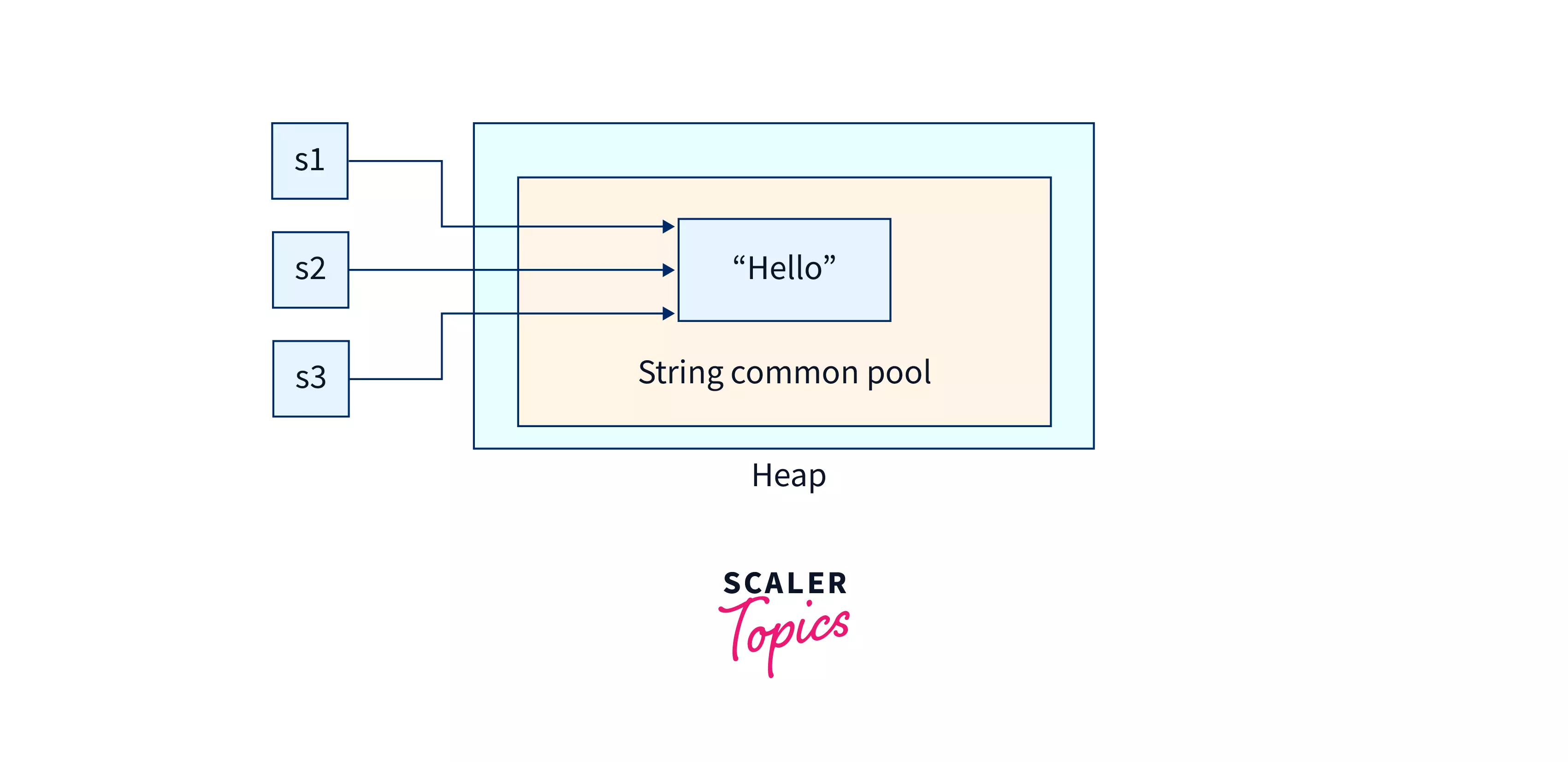Why Are Strings Immutable in Java? Discovering the Design Choices
Why Are Strings Immutable in Java? Discovering the Design Choices
Blog Article
Immutable Strings: A Secret Part in Ensuring Information Consistency and Dependability
In the realm of information management, the significance of immutable strings can not be overemphasized. The principle of immutable strings transcends plain technicality; it is a linchpin in the complex internet of data governance.
The Idea of Immutable Strings
Immutable strings, a basic concept in programming, describe strings that can not be changed when they are developed. Basically, when a string worth is designated, any kind of procedure that appears to change the string in fact develops a new string. This immutability makes sure data uniformity and integrity in applications, as it prevents unexpected modifications to the original information.
Advantages in Data Consistency

Information uniformity is important in various aspects of software application development, including database monitoring, multi-threaded settings, and distributed systems (Why are strings immutable in Java?). Unalterable strings contribute considerably to accomplishing this consistency by stopping information corruption because of concurrent accessibility. In scenarios where multiple procedures or strings engage with the same information concurrently, unalterable strings serve as a safeguard versus race problems and synchronization issues
In addition, the immutability of strings simplifies debugging and testing processes. With immutable strings, developers can trust that once a string is set, it will continue to be unmodified, making it easier to map the source of mistakes and making certain that test situations generate constant results. This dependability in data dealing with ultimately brings about much more durable and steady applications.

Executing Unalterable Strings
Making sure the immutability of strings calls for a thoughtful method to their application in software program growth. As soon as a string item is produced, one crucial technique is to design string courses in a method that avoids modifications. By making strings unalterable, programmers can enhance information uniformity and integrity in their applications.
To apply immutable strings effectively, designers must prefer producing brand-new string items as opposed to modifying existing ones. This method ensures that as soon as a string is appointed a value, it can not be transformed. In addition, any kind of operation that shows up to change the string ought to create a new string with the wanted modifications rather of modifying the original.
In addition, using unalterable strings can streamline concurrency management in multi-threaded settings. Given that immutable strings can not be changed after development, they can be safely shared among several threads without the danger of information corruption.
Role in Integrity Assurance
In software application advancement, the utilization of unalterable strings plays an essential function in making sure the integrity of data procedures. Unalterable strings, once produced, can not be customized, making sure that the data they represent remains consistent throughout the application's execution. This immutability residential or commercial property provides a level of guarantee that the information being refined will like this not be inadvertently changed, resulting in unanticipated results or mistakes in the system.
By integrating immutable strings right into software program design, programmers can improve the dependability of their applications by lessening the threats connected with mutable data - Why are strings immutable in Java?. Immutable strings assist in preventing data corruption or unintended alterations, which can be particularly vital when dealing with delicate information or when data honesty is paramount
Furthermore, the usage of unalterable strings simplifies concurrent handling, as numerous strings can safely gain access to and share string data without the threat of one thread changing the content while one more reads it. This element adds substantially my sources to the general dependability of the software application system, guaranteeing foreseeable and consistent habits in data handling procedures.
Applications and System Assimilation
The seamless integration of unalterable strings into numerous applications and systems is crucial for making certain durable data consistency and integrity across diverse technological environments - Why are strings immutable in Java?. Unalterable strings play an essential role in enhancing the honesty of data exchanges and communications within complex software communities. By integrating unalterable strings right into applications, designers can reduce the dangers related to data tampering, unauthorized alterations, and unintentional alterations, thereby strengthening the general safety and security posture of the system
In the context of system assimilation, immutable strings offer as a fundamental aspect for establishing safe interaction networks and assisting in smooth data transfers in between various parts. Their unalterable nature makes sure that information sent in between systems remains verifiable and unmodified, lowering the probability of disparities or mistakes that could endanger the integrity of the whole system. Furthermore, unalterable strings can boost interoperability in between disparate systems by giving a standard layout for information representation, enabling more effective information processing and exchange methods throughout interconnected platforms. By embracing immutable strings in applications and system integration procedures, companies can strengthen their information infrastructure and maintain the dependability and uniformity see here of their info possessions.
Final Thought
To conclude, immutable strings play an important duty in keeping information uniformity and integrity in various applications and system integrations. By guaranteeing that strings can not be altered as soon as developed, the stability of information is preserved, lowering the danger of errors and variances. Carrying out unalterable strings can substantially improve the integrity of systems, ultimately bring about more exact and reliable information handling.

Report this page